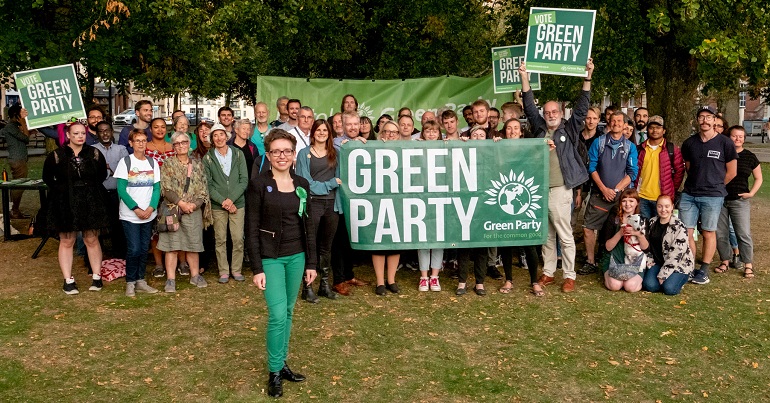The Champagne Socialist Fallacy

‘Champagne socialist,’ ‘limousine liberal’, or my personal favourite ‘bourgeois bohemian’ are equivalent accusations aimed at people who advocate socialist thought, while enjoying personal wealth. It is an appeal to a supposed hypocrisy; you cannot be an agent of social justice, as long as you harbour the spoils of such inequality.
People deploy the phrase ‘Champagne socialist’ a lot online. They smirk at their computer screens, shrewdly slipping around comment boards imploding egalitarian arguments with a single phrase. Admirable; how they succinctly rebuke entire arguments without even having to engage with a solitary point! It is an intellectual miracle, no doubt.
Historically, left-wing figures tend to come from privileged backgrounds. Marx was middle- class and Engels was the son of a wealthy German textile manufacturer. The nature of an unequal system is more likely to produce upper or middle class socialists. On the one hand, more exposure to education means the privileged are more likely to engage with political theory. On the other, working class people have less time to meditate on their position. Contemplation does not put food on the table; it does not yield the tangible benefits necessitated by their position in society.
The nature of an unequal system also means it is impossible to wholeheartedly exist as you would in a more equal one.“Tony Benn is a joke! Supposedly advocates socialism yet drinks PG tips – a capitalist product!” You can hardly exist in society and not purchase commodities. “Look at you typing about socialism on a windows laptop, you sanctimonious wanker.” Thus there is a level of hypocrisy in almost any egalitarian, rich or poor. I challenge you to exist in a socialist society all by yourself. “Oh the irony: occupy Wall Street protestors buying Starbucks coffee!” Whilst one should make conscious decisions and avoid such abject tax avoiders, they were probably in a rush and needed a quick caffeine boost. This hypocrisy does not nullify their conviction; it is merely an outcome of the oligopoly we live in.
The very idea that the privileged are speaking out against a system that has disproportionately benefited them should be revealing. A working class person hailing socialism will be dubbed envious; she or he lacked the individual merit to succeed. “What ‘contingent factors’? They lacked the innovation, the ambition; they did not strive hard enough!” However, a rich person – a rich person has won, against the odds they have come out on top. A systemic redistribution of wealth is directly against their economic interests. And thus, in this respect, it is more poignant that they support it nonetheless.
“An individual acting against their economic interests is much too suspicious! They don’t really support it. It is a ploy to legitimise their wealth through feigning social principles. They think it will never be actualised, so are free to engage without it ever affecting them!” Well, I can’t think of anything that illegitimates their wealth more than theories that contradict the system that enabled it. Maybe they have an overwhelming sense they have become defined by their possessions. Maybe they feel alienated from their fellow man; they want to flourish in a way that is mutually beneficial, not exploitative. Maybe they have become aware of society’s childlike perversion of competitive individualism into full social irresponsibility. Perhaps no amount of Champagne can alleviate their social conscience.
“Then if they want an egalitarian society, why not distribute their personal wealth to philanthropic causes?” Well, charity is of course commendable; it does tremendous good within the bounds of the few it graces. But it is a sugar coated pill. Charity only treats the symptom of the problem, whilst camouflaging the cause: “we need more charity, not less profit”. Thus it actually helps to maintain capitalism. It obscures any appeal to institutional inequality with an atmosphere of gratitude. “How can you complain when we are so altruistic?” If the rich were looking for a way to legitimise their wealth, charity is it. It helps to frame society in a way which the poor are indebted and not the rich, who depend upon the poor for their privilege. This is why charity is championed in society whilst socialist thought is scorned with personal assaults like ‘Champagne socialist’.
Ad hominem attacks have always been a popular smokescreen amongst the powerful. When the spotlight is on the individual, whether it be their appearance, background or wealth, it is away from their line of argument. Instead of defending themselves against Russell Brand, the Sun turned to allegations that he is a hypocrite and unfunny, conveniently re- framing, rather than engaging with the discourse. Smear tactics are also attractive to proletariats who are impartial to confirmation bias. They provide a convenient way to sidestep considering the argument, leaving their predisposed views free from scrutiny.




When the spotlight is on the individual, whether it be their appearance, background or wealth, it is away from their line of argument.
That is so true! I also found the term ‘moralism’ spot on. I’m a ‘Morrison’s Prosecco’ socialist (or rather social democrate to be honest) myself, but I hang out with a lot of really radical people, and the one thing that is making me deeply uncomfortable these days is the tendency the settle arguments not by rational discussion back and forth between each person’s arguments, where you both slightly evolve (because there is always something to be gained from others’s ideas, you can never be 100% right) until you come, not to a compromise because you can’t always agree, but to a position where each person has confronted their arguments to opposition and is more sure of what to do as a result, but by some sort of weighing each speaker’s amount of supposed privilege: like you’re putting on a scale social class + ethnicity + gender identity + whether you visually pass as your gender identity + sexual orientation + disability, and whomever ends up with the most point of ‘lack of privilege’ automatically wins the argument, regardless of what they said. I see a lot of that these days in activist/radical circles, and it scares me intellectually of where the progressive movement is going.
Totally agree. It is not hypercritical to use facilities currently available to provide well-being which would not be needed if society was structured in the way you believe it should. Ie I believe the world should be ecologically sustainable and as equal as possible whilst maintaining individual freedoms. I have used planes and will continue to use them occasionally because they are much cheaper than trains, as with cars. They should not be, but I have not made that decision to make public transport expensive and inconvenient and I am not going to make my life more difficult than the elite already make it, supported it seems by majority of the population(under the indoctrination of the the media and mis education imv).